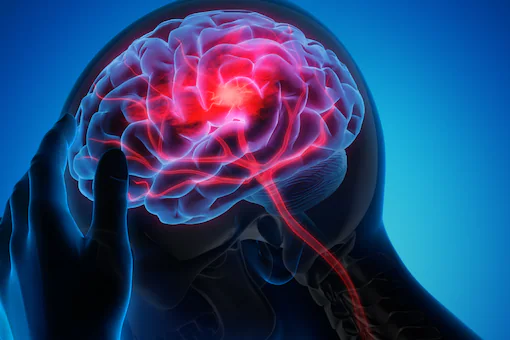Image credit: themirror.co.uk
Study finds that the risk of neurological and psychiatric disorders remains high even two years after Covid-19 infection.
Psychosis seizures, dementia, psychosis, and “brain fog” remain more prevalent for as long as two years after the infection than after other respiratory infections, as a massive follow-up study found.
It also found that the risk-increased risks of anxiety and depression seen in a previous study vanished within a couple of months, and there was an overall lack of cases in the past two years.
Researchers at the Oxford University University of Oxford used data from the US-located TriNetX digital health record network to examine 14 diagnoses of psychiatric and neurological disorders over two years. The data from 1.25 million patients diagnosed with covid-19 were matched against eighty-two confounding variables to an entire cohort of 1.25 million patients with other respiratory illnesses.
They were also found to be at twice the chance of having seizures or epilepsy as 260 out of 10 000 were diagnosed with the condition within 2 years of covid-19 infection as opposed to 130 cases in 10 000 following various respiratory diseases. Children also had an increased risk of developing a psychiatric disorder detected in the 2 years following covid infection. However, cases were extremely rare, with 18 per 10,000.
However, the likelihood for children to develop being diagnosed with psychiatric or neurological disorders following covid-19 was less than that of adults. However, they were not considered to be at higher risk of depression or anxiety as children with other respiratory infections, not even during the first 6 months. The risk of having brain fog was also discovered to be a temporary condition in children.
The study also investigated the effects of different coronavirus variations by comparing patients who were infected shortly after and prior to the dominance of alpha delta, alpha, and the omicron. The study found that, while the omicron variant resulted in more mild acute illnesses and fewer deaths than alpha or delta however, it was also associated with the same risks of psychiatric and neurological complications.

The research, which was published in Lancet Psychiatry, confirms earlier research findings about the increased risk of developing psychological and neurological disorders during the first few months following an infection with covid-19.
The researchers pointed out that their research had some limitations. It is unclear the time when the disorder first appeared and how severe or in duration they were. This study also has the potential to underestimate the number of people suffering from mild or asymptomatic Covid-19, and in some instances, vaccination status could not have been recorded.
The study’s lead researcher, Max Taquet, NIHR academic clinical fellow in psychiatry at Oxford University of Oxford, said that the findings that showed the increased risk of anxiety and depression disorders vanished within three months is “very reassuring indeed.” However, he said at an Science Media Centre briefing, “The more worrying news is that other disorders including brain fog, dementia, psychotic disorders, and epilepsy and seizures remain elevated, with more new cases still being newly diagnosed two years after covid-19 infection.”
The study revealed that among seniors over 65, the rate of developing dementia was 4.5 percent in those suffering from an infection with covid-19 and 3.3 percent in those suffering from an additional respiratory illness. Taquet added, “It is clear this is not a tsunami of cases, but it is hard to ignore given the severity of the consequences of a dementia diagnosis.”
The study’s authors warned clinicians and patients to be aware of possible delayed sequelae. “These findings suggest that service provision needs to be reinforced and sustained because new cases are likely to occur for a considerable time after the pandemic has subsided,” they wrote.
In this briefing, Paul Harrison, a co-author of the study and a professor of psychiatry and psychology at the University of Oxford, said, “These are significant findings. However, they shouldn’t trigger anxiety or blindness to the impact of the entire pandemic in the overall health of the brain health of the general population.
“For certain conditions, there appears to be a significant and persistently higher chance of having these diagnoses given. For some conditions, they do not require massive and ongoing medical intervention.”
He said that the mental health services, specifically those for adolescents and children, are already in crisis, which would only increase the burden.








